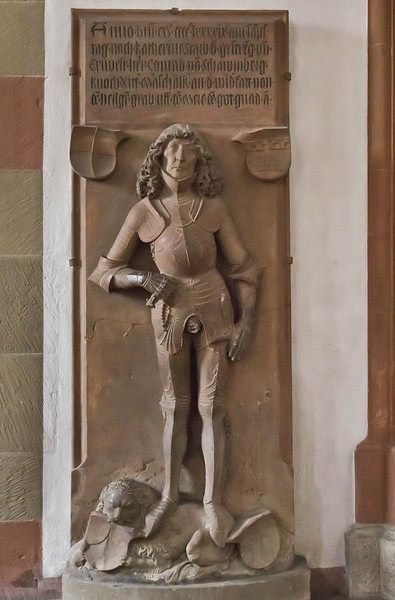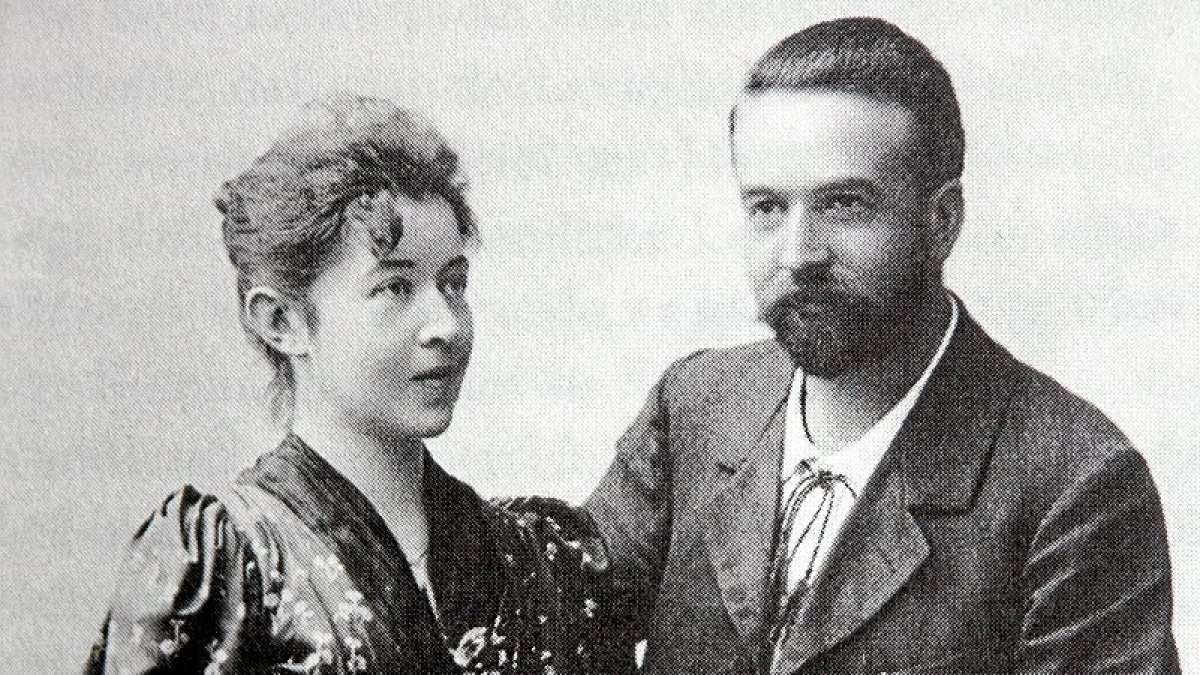Spring
Frühling
Frank Wedekind (1864-1918)
Frühling
Willkommen, schöne Schäferin
In deinem leichten Kleide,
Mit deinem leichten frohen Sinn,
Willkommen auf der Weide.
Sieh, wie so klar mein Bächlein fließt,
Zu tränken deine Herde!
Komm setz dich, wenn du müde bist,
Zu mir auf die grüne Erde.
Und trübt sich der Sonne goldiger Schein,
Und fällt ein kühlender Regen,
Dann ist mein Mantel nicht zu klein,
Wollen beide darunter uns legen.
Spring
Welcome, pretty shepherdess
In your simple summer dress!
With your easy happiness,
Welcome to the meadow.
See, my streamlet runs so clear!
Your flock can all be drinking.
Come if you’re weary, by me here
On the green meadow sinking.
And if the sun goes off in a huff
And we’ve cool fresh rainy weather,
Well, then, my coat is wide enough
For us to lie under together.
Translation: Copyright © Timothy Adès
More poems by Frank Wedekind...
To have your heart
Ich werde nicht an deinem Herzen satt
Ricarda Huch (1864-1947)
Ich werde nicht an deinem Herzen satt
Ich werde nicht an deinem Herzen satt,
Nicht satt an deiner Küsse Glutergießen.
Ich will dich, wie der Christ den Heiland hat:
Er darf als Mahl den Leib des Herrn genießen.
So will ich dich, o meine Gottheit, haben,
In meinem Blut dein Fleisch und Blut begraben.
So will ich deinen süßen Leib empfangen,
Bis du in mir und ich in dir vergangen.
To have your heart
To have your heart I cannot slake my lust:
I crave your kisses’ lambent blaze outpoured:
I crave as Christian yearns for Saviour Christ
To feast upon the body of my Lord.
You are my hallowed Godhead: this I crave:
Your blood and body in my blood to hide.
Yours, the sweet flesh I hunger to receive,
Till you in me, and I in you, have died.
Translation: Copyright © Timothy Adès
More poems by Ricarda Huch...
Ljuba
Peter Altenberg (1859-1919)
Die da nicht kommen an Deinen Tisch,
Die sind klüger als ich!
Die schützen sich!
Ich aber, gleich der Motte im Lichte,
mache meinen Selbsterhaltungs-Trieb zu nichte!
Ich will lieber in Licht und Hitze sterben,
als gesichert um Anna oder Grete werben!
Die da nicht kommen an Deinen Tisch,
Die sind dümmer als ich!
Sie schützen sich!
Ljuba
Those who don’t come to your table
*Cleverer than me*
They keep out of trouble!
But I’m like the moth in the light
My self-preservation instinct, I disable!
I’d rather die in the light and heat
Than safely court Ann or Marguerite.
Those who don’t come to your table
*Sillier* than me
They keep out of trouble!
Translation: Copyright © Timothy Adès
More poems by Peter Altenberg...
Loveless
She was Freud’s famous patient, ‘Anna O’.
„Mir ward die Liebe nicht“
Bertha Pappenheim (1859-1936)
She was Freud’s famous patient, ‘Anna O’.
„Mir ward die Liebe nicht“
Mir ward die Liebe nicht –
Drum leb ich wie die Pflanze,
Im Keller ohne Licht.
Mir ward die Liebe nicht –
Drum tön ich wie die Geige,
Der man den Bogen bricht.
Mir ward die Liebe nicht –
Drum wühl ich mich in Arbeit
Und leb mich wund an Pflicht.
Mir ward die Liebe nicht –
Drum denk ich gern des Todes,
Als freundliches Gesicht.
Loveless
Loveless
Living like a plant
In an unlit cellar
Loveless
Sounding like a fiddle
With a broken bow
Loveless
Plunging into work
With a wound of duty
Loveless
Glad to think of Death
Friendly face I know.
Translation: Copyright © Timothy Adès
More poems by Bertha Pappenheim...

